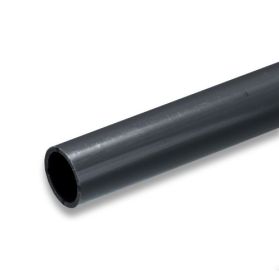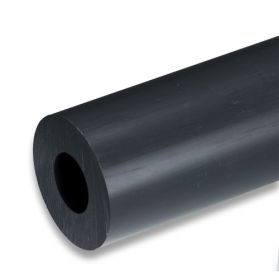Polyvinyl chloride (PVC)
Material properties of polyvinyl chloride (PVC)
PVC, a predominantly amorphous thermoplastic, is an important mass plastic, but plays no important role in technology. This is especially true for long-term applications in electrical engineering and construction. PVC, which is brittle and hard in itself, is adapted to a wide range of applications with additives, primarily plasticizers, stabilizers and modifiers. The additives improve the physical properties such as temperature, light and weather resistance, toughness and elasticity, notched impact strength, gloss and they serve to improve processability.
PVC offers a variety of good properties and is also cost-effective. PVC-U is a classic material for chemical apparatus and tank construction, as it combines excellent properties such as high strength and rigidity as well as stabilisation against weathering, which makes it suitable for outdoor use. Rigid PVC also has very good chemical resistance and is flame-retardant. Furthermore, PVC can be glued and painted very well and is also easy to weld.


